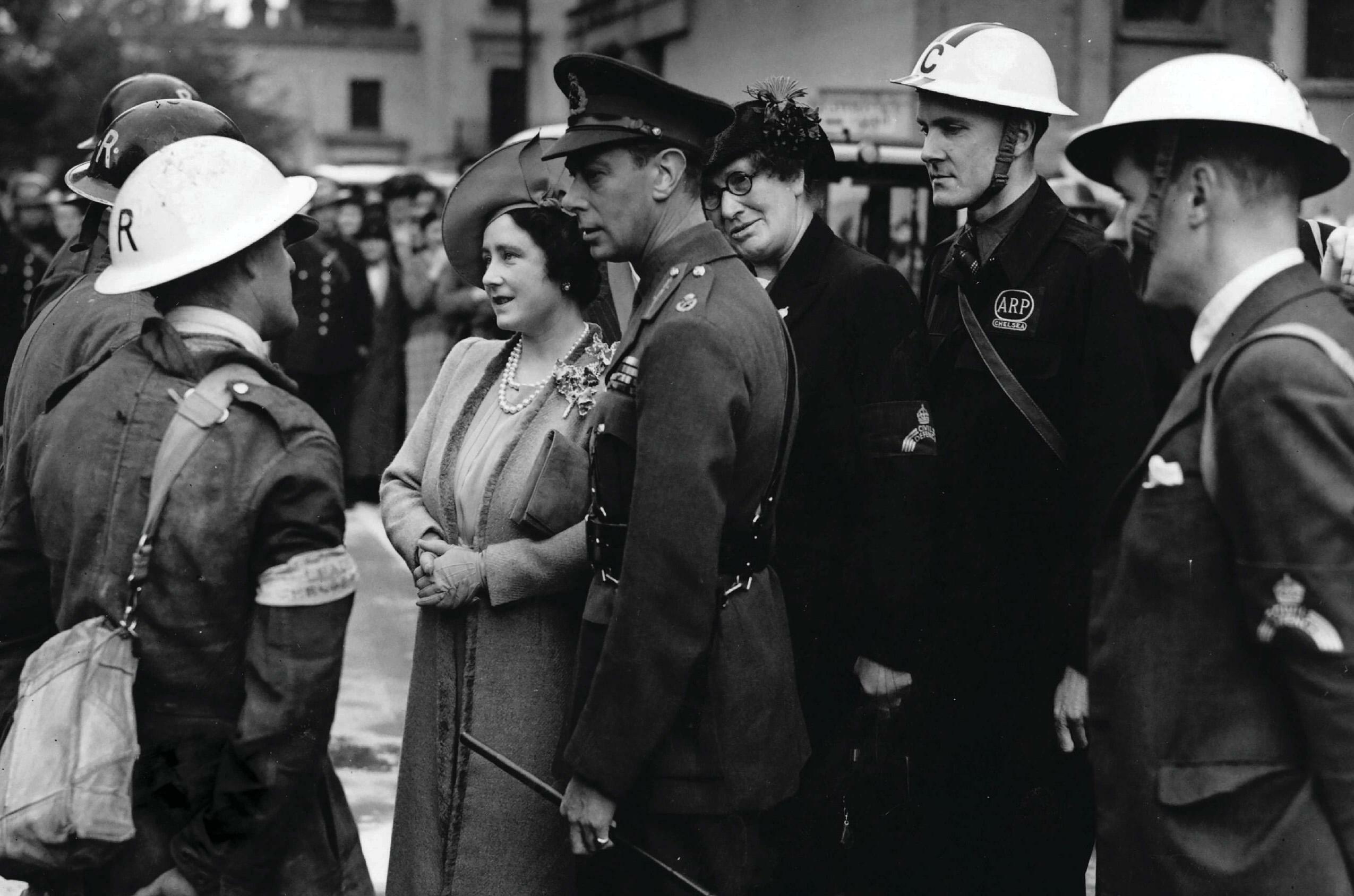Prøve GULL - Gratis
GEORGE VI'S NAZI DILEMMA
BBC History UK
|April 2023
As war raged across the globe, the king had to confront admirers of Adolf Hitler uncomfortably close to home

Even today, 80 years after the Second World War, these words retain the power to shock. But when the Duke of Windsor reportedly uttered them to Lord Kinross in the 1960s, few in the upper tiers of the British establishment would have been surprised by the sentiments. The former Edward VIII has been described as the “traitor king” on account of his perceived fascist leanings, of which his belief that Hitler was “not such a bad chap” was almost the least egregious.
Edward’s sympathies were well-known enough by 1940 for Winston Churchill to write an initial draft of a letter – later diplomatically toned down – to the other prime ministers of the Commonwealth that stated: “The activities of the Duke of Windsor on the continent in recent months have been causing [His Majesty] and myself grave uneasiness as his inclinations are well known to be pro-Nazi, and he may become a centre of intrigue.”
The Duke and Duchess of Windsor had visited Germany in October 1937, a trip organised by the Nazi-sympathising industrialist Charles Bedaux as a quid pro quo for having hosted their wedding at his French chateau earlier that summer. The Windsors had met Hitler, and were given a curated tour of Germany as an energetic, forward-looking country, led by a near-messianic figure.
Denne historien er fra April 2023-utgaven av BBC History UK.
Abonner på Magzter GOLD for å få tilgang til tusenvis av kuraterte premiumhistorier og over 9000 magasiner og aviser.
Allerede abonnent? Logg på
FLERE HISTORIER FRA BBC History UK

BBC History UK
Hymn to life
Scripted by Alan Bennett and directed by Nicholas Hytner - a collaboration that produced The Madness of King George and The History Boys – The Choral is set in 1916.
1 min
December 2025

BBC History UK
Helen Keller
It was when I was eight or nine years old, growing up in Canada, and I borrowed a book about her from my local library.
2 mins
December 2025

BBC History UK
Spain's miracle
The nation's transition from dictatorship to democracy in the late 1970s surely counts as one of modern Europe's most remarkable stories. On the 50th anniversary of General Franco's death, Paul Preston explores how pluralism arose from the ashes of tyranny
8 mins
December 2025

BBC History UK
Just how many Bayeux Tapestries were there?
As a new theory, put forward by Professor John Blair, questions whether the embroidery was unique, David Musgrove asks historians whether there could have been more than one 'Bayeux Tapestry'
7 mins
December 2025

BBC History UK
In service of a dictator
HARRIET ALDRICH admires a thoughtful exploration of why ordinary Ugandans helped keep a monstrous leader in power despite his regime's horrific violence
2 mins
December 2025

BBC History UK
The Book of Kells is a masterwork of medieval calligraphy and painting
THE BOOK OF KELLS, ONE OF THE GREATEST pieces of medieval art, is today displayed in the library of Trinity College Dublin.
3 mins
December 2025

BBC History UK
Passing interest
In his new book, Roger Luckhurst sets about the monumental task of chronicling the evolution of burial practices. In doing so, he does a wonderful job of exploring millennia of deathly debate, including the cultural meanings behind particular approaches.
1 mins
December 2025

BBC History UK
Is the advance of AI good or bad for history?
As artificial intelligence penetrates almost every aspect of our lives, six historians debate whether the opportunities it offers to the discipline outweigh the threats
8 mins
December 2025

BBC History UK
Beyond the mirage
All serious scholarship on ancient Sparta has to be conducted within the penumbra of the 'mirage Spartiate', a French term coined in 1933 to describe the problem posed by idealised accounts of Sparta.
1 mins
December 2025

BBC History UK
He came, he saw... he crucified pirates
Ancient accounts of Julius Caesar's early life depict an all-action hero who outwitted tyrants and terrorised bandits. But can they be trusted? David S Potter investigates
10 mins
December 2025
Translate
Change font size
